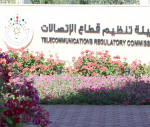You are here
Jordanian Royal diplomacy: Efforts to end conflicts, achieve peace
Oct 26,2024 - Last updated at Oct 26,2024
Amidst the ongoing tensions and armed conflicts sweeping the region, Jordan’s Royal Diplomatic efforts led by His Majesty King Abdullah have been the focus of attention in attempts to ceasefire and achieve peace.
Throughout various historical stages, Jordanian diplomacy has played a pivotal role in calming the situation in many conflicts, thanks to the wise vision of King Abdullah and his constant keenness to provide peaceful solutions that guarantee the security and stability of the region.
Jordan is a small country in terms of its geographical size, but its political role extends far beyond its borders due to its strategic location in the midst of many troubled countries, in addition to its close relationship with major and regional powers. This role was further strengthened when King Abdullah assumed power in 1999, as his term was characterised by calm and thoughtful diplomacy aimed at maintaining the balance of the region amid successive storms.
In recent contexts, especially after the escalation of conflicts in Palestine, Syria and Yemen, Jordan has played a prominent role in attempts to stop the bloodshed and work to achieve a comprehensive truce.
In the Palestinian crisis, King Abdullah has continued to defend the rights of the Palestinian people in international and regional forums, stressing that peace will not be achieved without finding a just solution to the Palestinian issue according to the two-state solution.
Perhaps the continuous Jordanian efforts to protect the Islamic and Christian holy sites in Jerusalem clearly reflect the King’s permanent commitment to preserving the Palestinian identity and its legitimate rights. Jordan was also among the first countries to call for a peaceful solution to the Syrian conflict, warning of the repercussions of the continuation of the civil war on the stability of the region.
King Abdullah has played the role of mediator on several occasions, calling for a ceasefire and the start of comprehensive political negotiations that bring together all Syrian parties.
Despite the complexities of the Syrian file, Jordanian diplomacy has continued to work silently and wisely to search for peaceful solutions, while emphasising the need to preserve Syria’s unity and territorial integrity.
Among the most prominent Jordanian diplomatic moves were the ceasefire initiatives in the Gaza Strip, where King Abdullah played a decisive role in communicating with the concerned parties and major countries to pressure for an end to the Israeli aggression against civilians in Gaza.
These efforts came as part of Jordan's ongoing efforts to defend the Palestinian people and prevent the deterioration of the humanitarian situation in the Strip.
The Jordanian monarchy has been a permanent partner in providing humanitarian aid to the people of Gaza and alleviating their suffering. In addition, Jordan has played an active role in attempts to stop the war in Yemen, as Jordanian diplomatic efforts continued with various concerned parties, whether regional or international, to search for a political solution that would stop the bloodshed in Yemen and restore stability to the war-torn country.
Despite the complexity of the political and military situation in Yemen, Jordan has continued to provide its support for any initiative aimed at achieving a comprehensive ceasefire and opening the way for political negotiations that guarantee the unity and safety of Yemen.
Jordan’s Royal diplomacy was not limited to ceasefire efforts in regional conflicts, but extended to strengthening international cooperation in combating terrorism and extremism. King Abdullah believes that ending armed conflicts cannot be achieved without addressing the roots of extremism that fuel violence in the region. Therefore, Jordan has been at the forefront of countries working to promote dialogue between religions and cultures, and combat extremist thought in cooperation with the international community.
The Aqaba Conference launched by King Abdullah is an important platform for exchanging ideas and experiences between countries in the field of combating terrorism.
Jordanian diplomacy under the leadership of King Abdullah has been characterised by calm and balance, with a constant focus on peaceful solutions and negotiations as the only means of resolving conflicts. Despite the major challenges facing the region, Jordan has continued to strive with all its might to play a positive role in reaching permanent solutions to crises.
This is evident in the consistent policy adopted by the Kingdom in supporting international legitimacy and enhancing the roles of the United Nations and international organisations in maintaining regional security and peace.
In general, it can be said that the Jordanian Royal diplomatic efforts represent a unique model in managing crises and armed conflicts, as King Abdullah combines political realism with a humanitarian vision. Through the delicate balance between preserving national interests and contributing to achieving regional peace, Jordan has succeeded in consolidating its position as a pivotal country in the region, playing the role of an honest mediator between conflicting powers.
In addition to its political role, Jordan has not neglected the humanitarian dimension of crises, as the Kingdom has been and continues to provide the necessary support to refugees and displaced persons and contributes to alleviating the suffering of peoples affected by wars and conflicts.
Finally, the success of Jordanian Royal diplomacy in achieving these goals is based on a fixed principle, which is that peace and stability can only be achieved through dialogue and mutual understanding, and that military force is not a sustainable solution to conflicts.
Hasan Dajah is professor of strategic studies at Al Hussein Bin Talal University













Add new comment